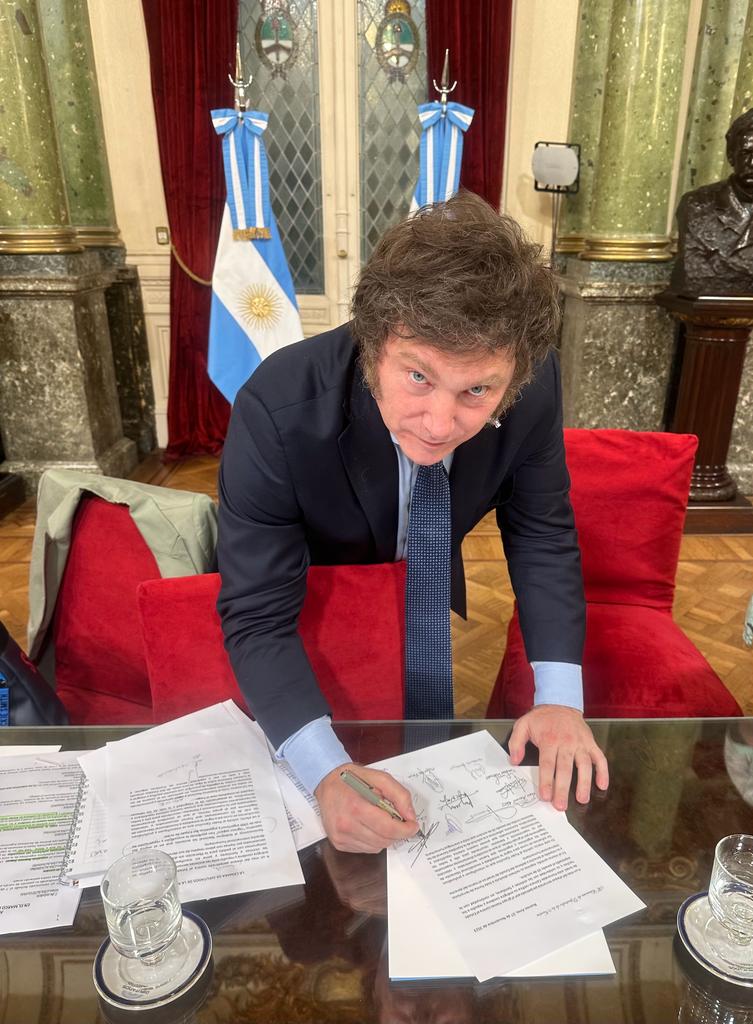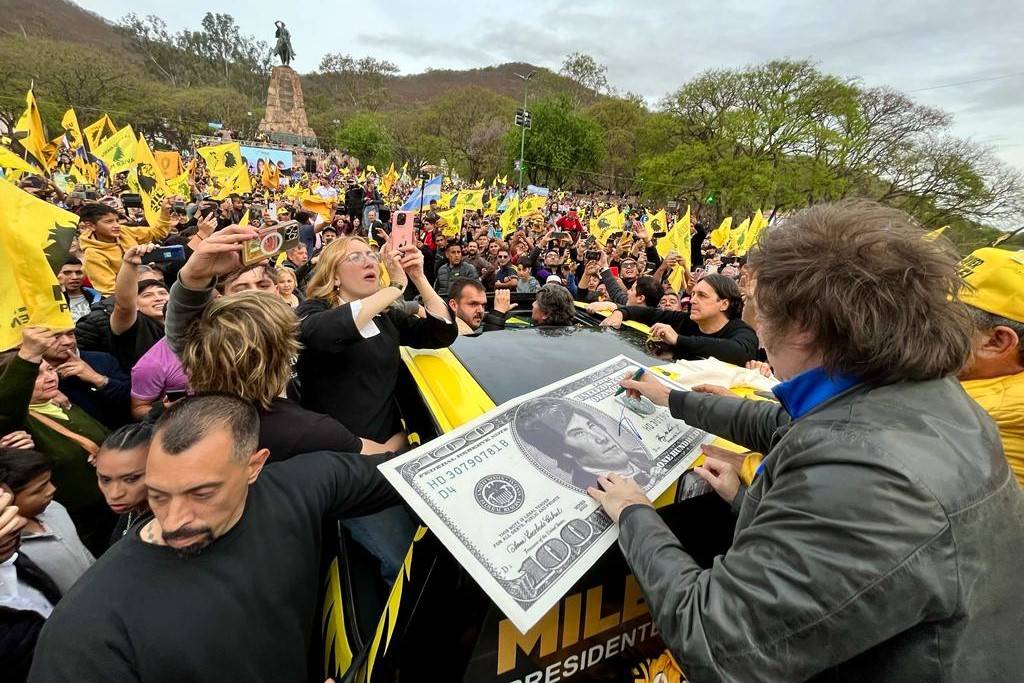The question now is whether Milei's election marks a radical turn in Argentine politics and signifies an era of far-right presidents in Latin America.
The victory of the far-right candidate Javier Milei in Argentina has sparked both hope and concern in the nation. While offering aspirations to halt the economic decline, it also raised fears due to his populist rhetoric, advocating a move away from the Peronist era and a tolerance towards the military dictatorship from 1976 to 1983.
After the electoral fervor, Milei's landslide victory of about 56% against 44% for his opponent, the Minister of Economy, Sergio Massa, confronts the elected president with the harsh reality of a nation on the brink of financial collapse. Argentina faces staggering inflation rates reaching 143%, expected to climb to 200% by early next year. The national currency, the peso, has plummeted by 90% in recent years. The official exchange rate is 354 pesos to a dollar, but in the black market, it is 900 pesos to a dollar. No less than 40% of the population, out of 48 million, live below the poverty line. Social protection programs account for a mere 1% of the total GDP, on which 51% of the population depends.
The government of former President Alberto Fernández struggled to repay a $44 billion loan from the International Monetary Fund (IMF), while the public debt represents 90% of the GDP, reaching $150 billion, propelling Argentina among the most indebted nations, alongside Egypt and Ecuador.
Facing this alarming situation, Milei proposes what he calls a "therapeutic shock" and a "new model" to restore Argentina's greatness. He advocates for the dollarization of the economy as a remedy to prevent total collapse. However, this measure faces the issue of the state's insufficient dollar reserves, even during the transition period. Slogans are not enough to reflect reality. Dollarization is a step Milei deems necessary to eliminate the central bank. It's noteworthy that, except for the United States, eight countries globally, including Ecuador and Panama in Latin America, use the dollar as their official currency.
Milei also addresses other sensitive issues, advocating for a 15% reduction in public spending, the end of subsidies in the transport and energy sectors, the liberalization of prices, and the removal of export taxes. He also recommends the privatization of 34 state-owned companies, reducing compensations and privileges granted to Supreme Court judges, diplomats, and presidents.
Milei's economic plans place Argentina in the face of radical changes, considering "socialism" as the country's number one enemy. His discourse builds on a rejection of the Peronist era. He even referred to a quote by the Italian communist thinker Antonio Gramsci, highlighting the need for the revolutionary left to culturally dominate to achieve its goals, preferring the Peronist period. These positions were noted by Argentine writer Yuki Goni in an article for the British newspaper The Guardian. On the other hand, Fox News journalist Tucker Carlson stated in September that communists "have no problem infiltrating the state using Gramsci's methods."
Many observers compare Milei to former U.S. President Donald Trump, notably for his populist discourse and policies little concerned with climate change, calling for the banning of abortion and easing restrictions on firearms. He is also critical of Argentina's two main economic partners, Brazil and China, calling for reassessing these relationships and favoring the country's opening to free trade while withdrawing from the Mercosur trade bloc, currently in talks for an economic partnership with the European Union.
Milei does not hide his preference for relations with "the free world, the United States, and Israel." He even announced his intention to visit Washington and Tel Aviv before officially taking office on December 10th. Moreover, he clearly expressed his disinterest in Argentina joining the BRICS group, composed of Russia, China, India, Brazil, and South Africa, while this coalition had invited six new countries, including Argentina, to join its ranks. At the last BRICS summit in South Africa, Brazilian President Luiz Inácio Lula da Silva insisted on including Argentina to strengthen Latin America's weight within the group, as an alternative to the unipolar hegemony led by the United States.
Milei's populist discourse reflects a fervent defense of the dictatorial era of the generals between 1976 and 1983, arguing that those years were a theater of war between saboteurs seeking to impose a communist dictatorship and security forces perhaps excessive in their actions. It is also known that Milei's vice president, Victoria Viarouil, was the defense lawyer for officers convicted of crimes against humanity during the military regime. These positions stir debates within Argentine society and could provoke public outrage if the new president were to grant pardons to convicted officers.
However, implementing Milei's policies requires the approval of Parliament, where the Peronists hold the majority. Milei's Libres Avancés party only has 38 seats out of 257 in the Chamber of Deputies, and only 7 out of 72 in the Senate.
Therefore, he will need to establish alliances with center-right parties to pass his decisions.

The question now is whether Milei's election marks a radical turn in Argentine politics and signifies an era of far-right presidents in Latin America.
While Milei admires former populist Brazilian President Jair Bolsonaro and questioned last year's election of Da Silva, the Brazilian president was among the first to congratulate Milei, considering that a "new hope arises" for Argentina. However, it is evident that countries like Brazil, Mexico, Colombia, and Venezuela are concerned that Milei's election could mark a return to dictatorship, as the region has seen a rise in left-wing parties. Venezuelan President Nicolás Maduro accused Milei of seeking to resurrect the "projects" of the dictatorships that took place in the 1970s in Argentina, Chile, and Uruguay.
Outside of Latin America, China has warned against a "grave error" if Milei ends its trade relations with China and Brazil, according to Diana Mondino, Milei's main advisor and candidate for the position of Minister of Foreign Affairs in the new government. China is Argentina's second-largest trading partner and the largest market for its agricultural exports.
It can be said that despair over the disastrous economic situation has led Argentinians to cling to Milei's "salvific" economic "philosophy," which has theoretically promised people hope to pull the country out of the bottomless abyss.
Please post your comments on:
[email protected]
 Politics
Politics








